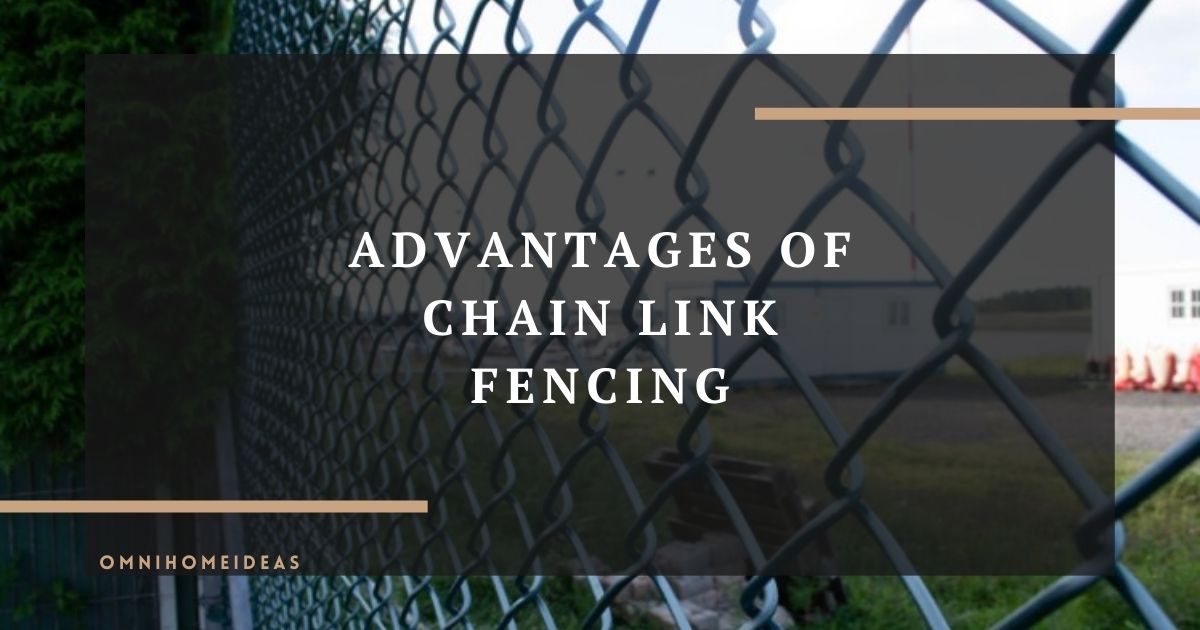Chain link fencing is a popular choice for property owners seeking a secure, cost-effective, and long-lasting fencing solution. With its distinctive diamond-patterned design and versatile applications, chain link fencing offers a range of advantages that make it an attractive option for both residential and commercial properties. In this detailed blog post, we’ll explore the key advantages of chain link fencing, focusing on its security features, affordability, and durability.

1. Security
Deterrent to Intruders
- Visible Barrier: Chain link fencing provides a clear and visible barrier, making it a deterrent to intruders and trespassers.
- Difficult to Climb: The tightly woven steel mesh and height of chain link fences make them difficult to climb, enhancing security for residential and commercial properties.
- Options for Security Enhancements: Additional security features such as barbed wire or razor wire can be added to further enhance security, making chain link fencing an effective option for high-security areas.
Enclosure for Property and Assets
- Boundary Definition: Chain link fencing helps define property boundaries, keeping unauthorized individuals out and ensuring that valuable assets are protected.
- Enclosure for Pets and Children: Ideal for enclosing yards and playgrounds, providing a safe and secure space for pets and children to play without the risk of wandering off or encountering dangers outside the property.
2. Affordability
Cost-Effective Solution
- Low Initial Cost: Chain link fencing is one of the most affordable fencing options available, making it accessible to homeowners and businesses with budget constraints.
- Minimal Maintenance Costs: Requires minimal maintenance compared to other types of fencing, reducing long-term costs associated with upkeep and repairs.
- Longevity: With proper installation and maintenance, chain link fencing can last for many years, providing excellent value for the initial investment.
Customization Within Budget
- Versatile Design Options: Despite its affordability, chain link fencing offers versatility in design, with options for different heights, mesh sizes, and coatings to suit specific needs and preferences.
- Customization: Homeowners and businesses can customize chain link fencing with various colors, privacy slats, or decorative elements to enhance aesthetics without breaking the budget.
3. Durability
Weather Resistance
- Galvanized Steel Construction: Chain link fencing is typically constructed from galvanized steel wire, which is coated with zinc to protect against rust and corrosion.
- Resistant to Weather Elements: The galvanized coating provides excellent resistance to weather elements such as rain, snow, and UV radiation, ensuring that the fence remains durable and stable in all seasons.
Long-Lasting Performance
- Sturdy Construction: The interlocking steel mesh design of chain link fencing provides inherent strength and durability, capable of withstanding impacts and external forces without bending or breaking.
- Low Maintenance: Requires minimal maintenance to preserve its structural integrity, such as occasional cleaning to remove dirt and debris or repairs to address any damage.
Conclusion
Chain link fencing offers a range of advantages that make it a practical and popular choice for securing residential and commercial properties. From its ability to enhance security and deter intruders to its affordability and durability, chain link fencing provides property owners with a reliable and cost-effective solution for fencing needs. Whether you’re looking to enclose your backyard, protect your business premises, or define property boundaries, chain link fencing offers a versatile and customizable option that delivers long-lasting performance and peace of mind. With its combination of security features, affordability, and durability, chain link fencing remains a top choice for property owners seeking a reliable and practical fencing solution.

